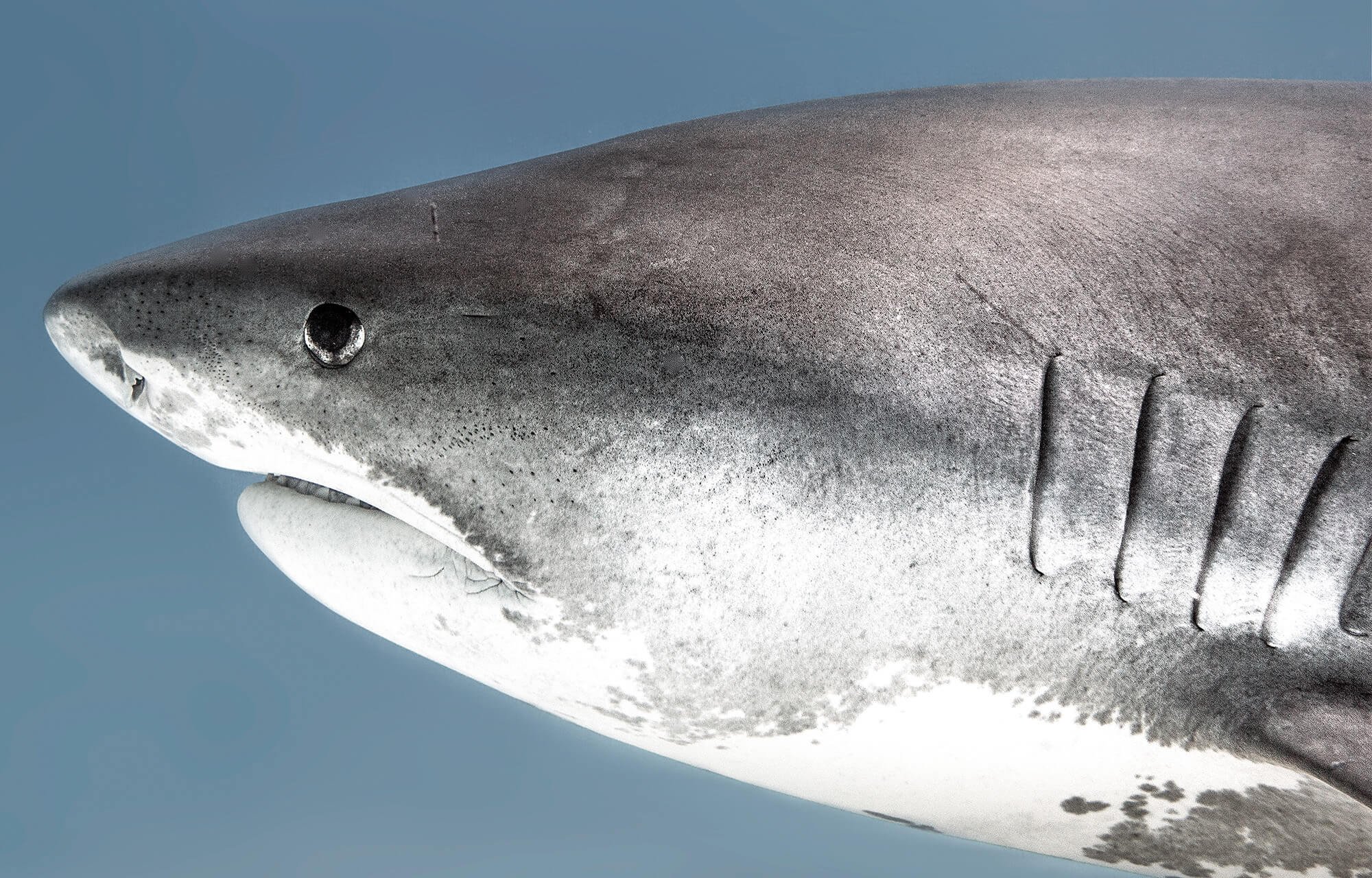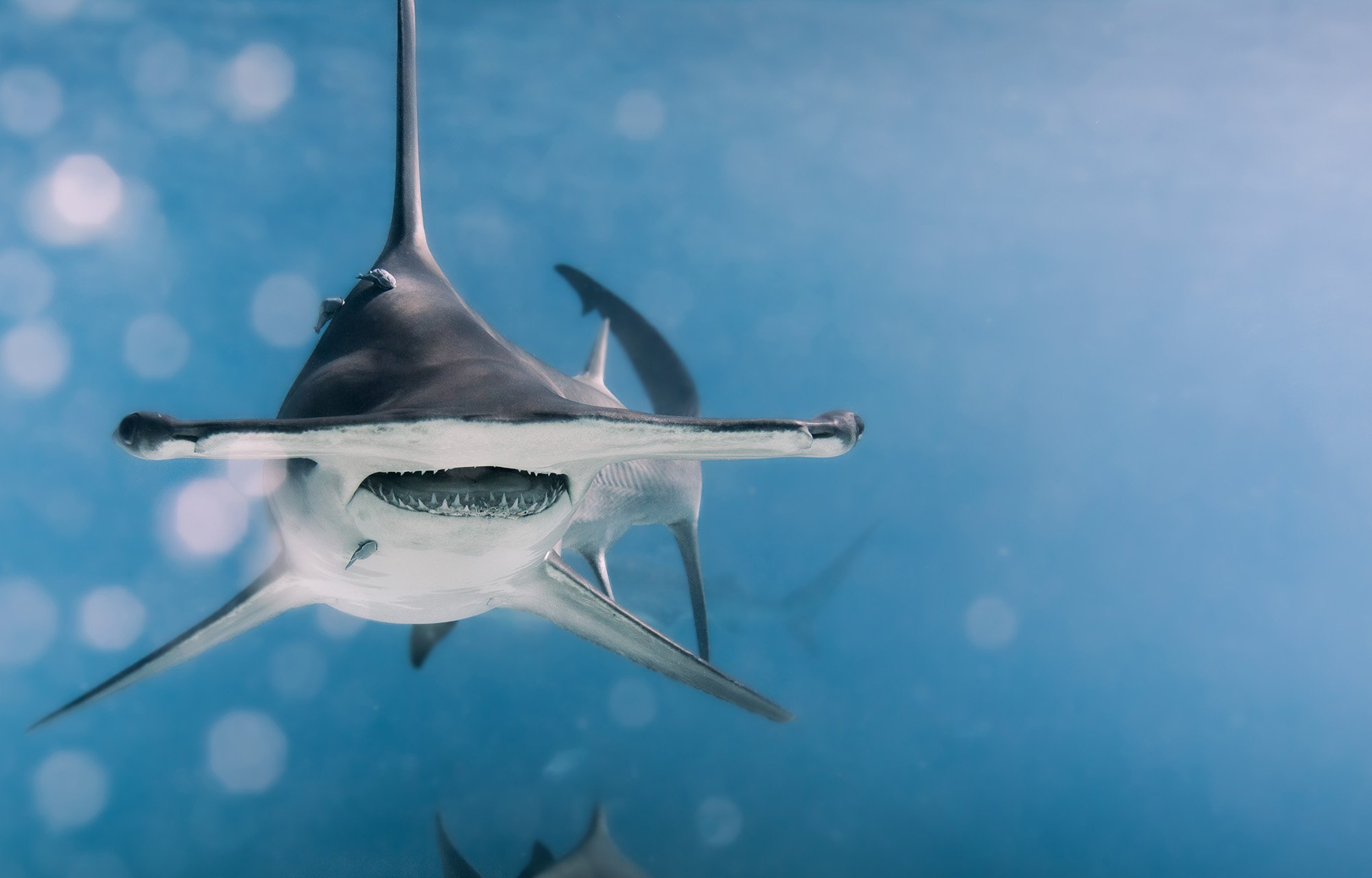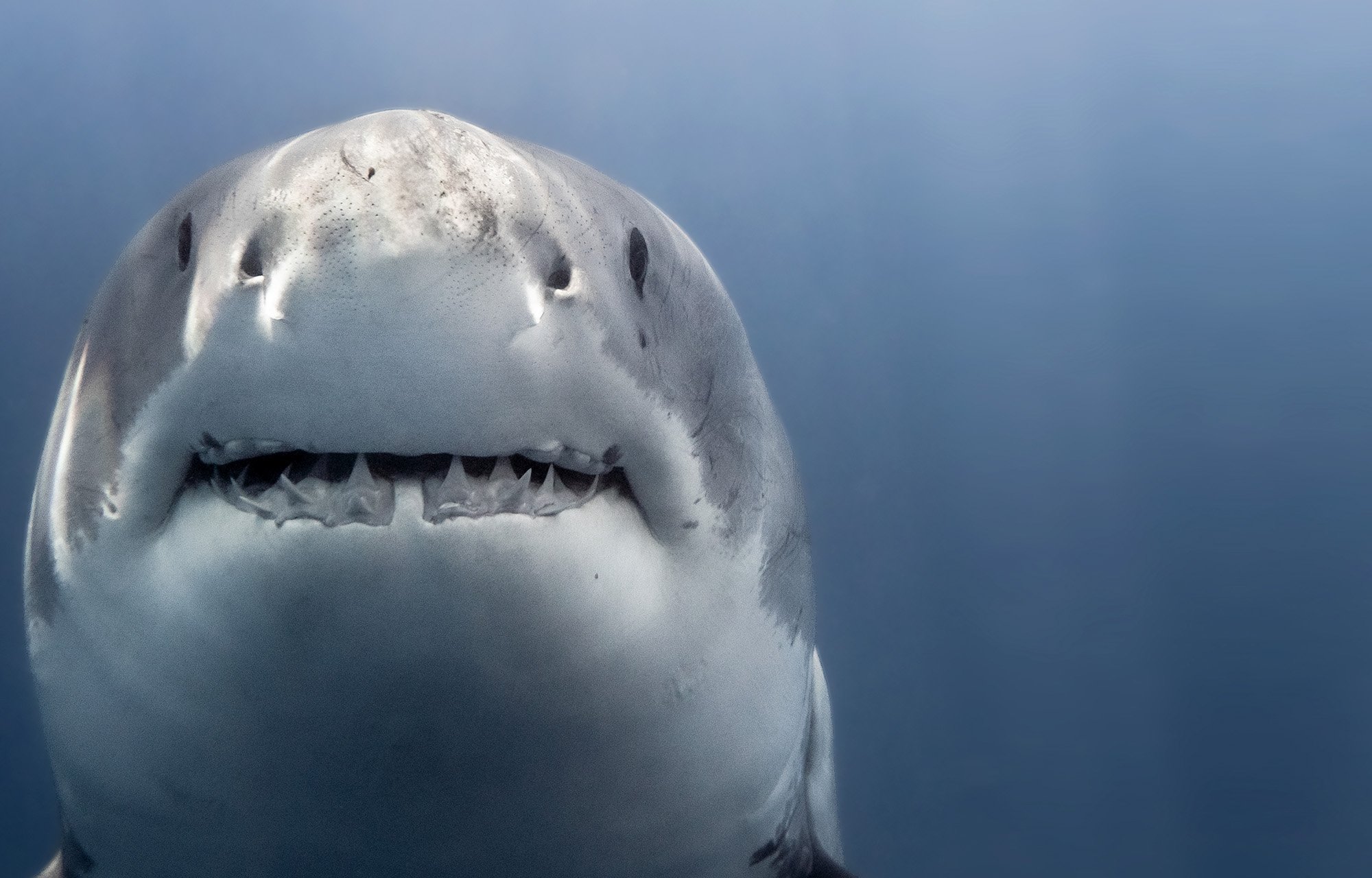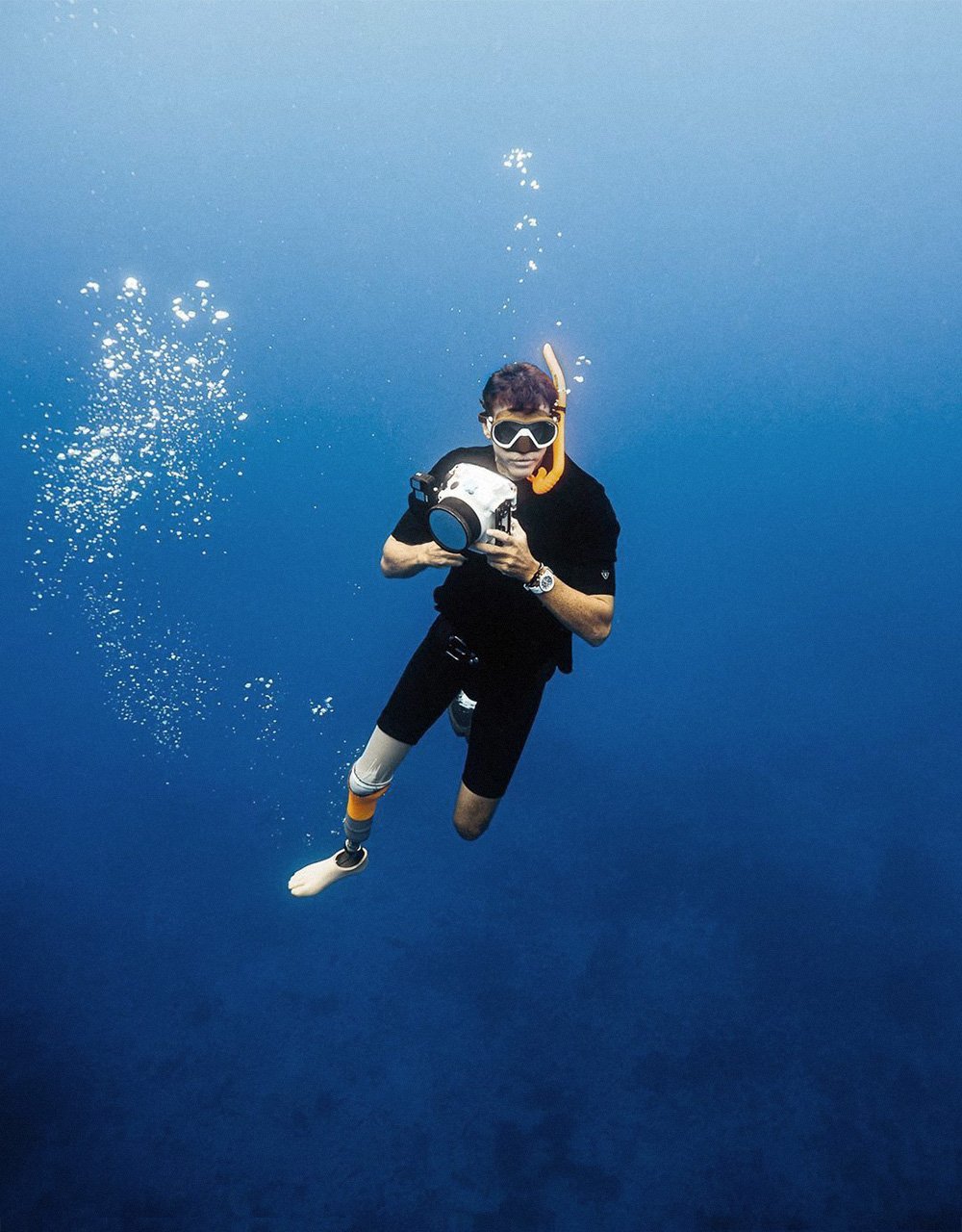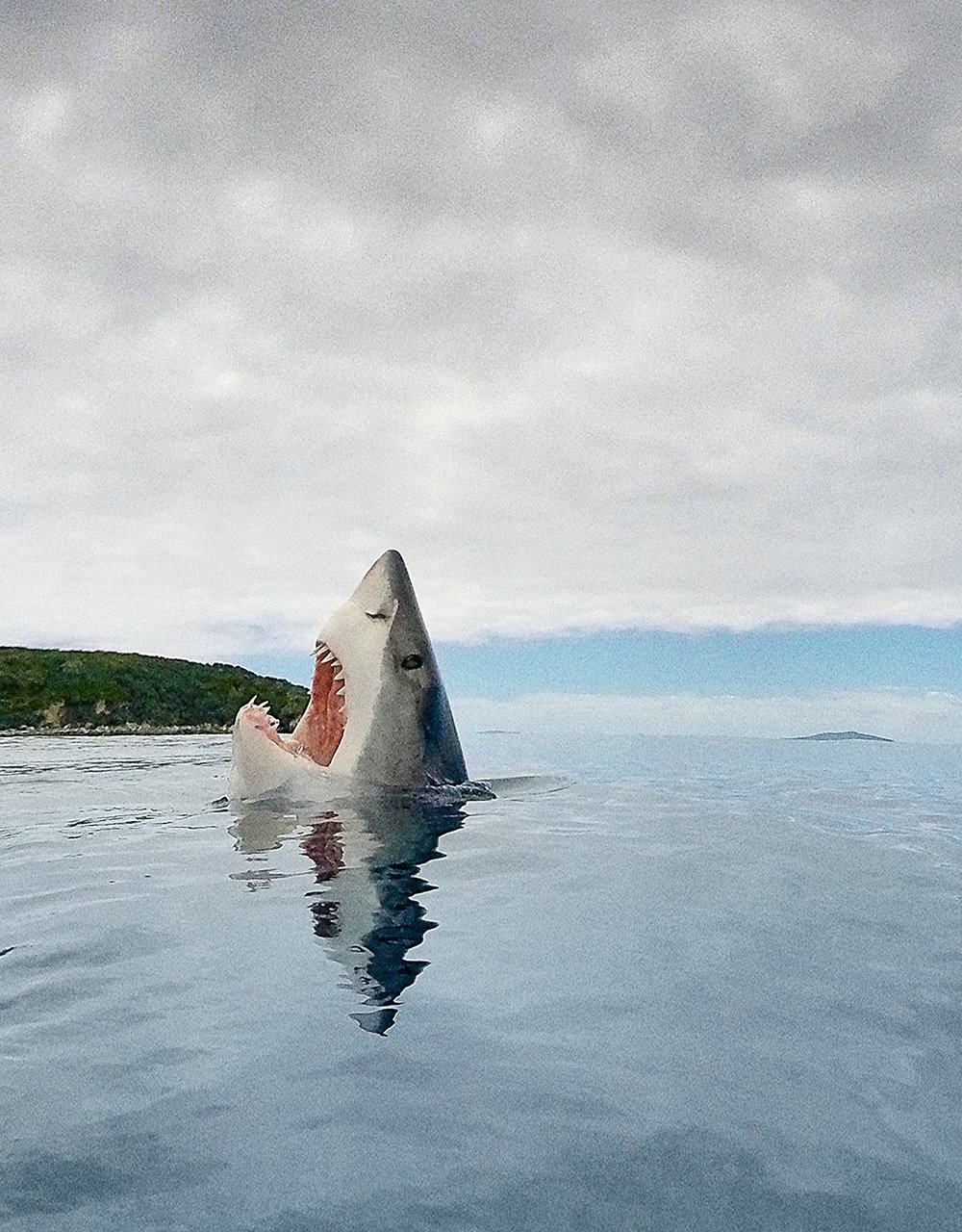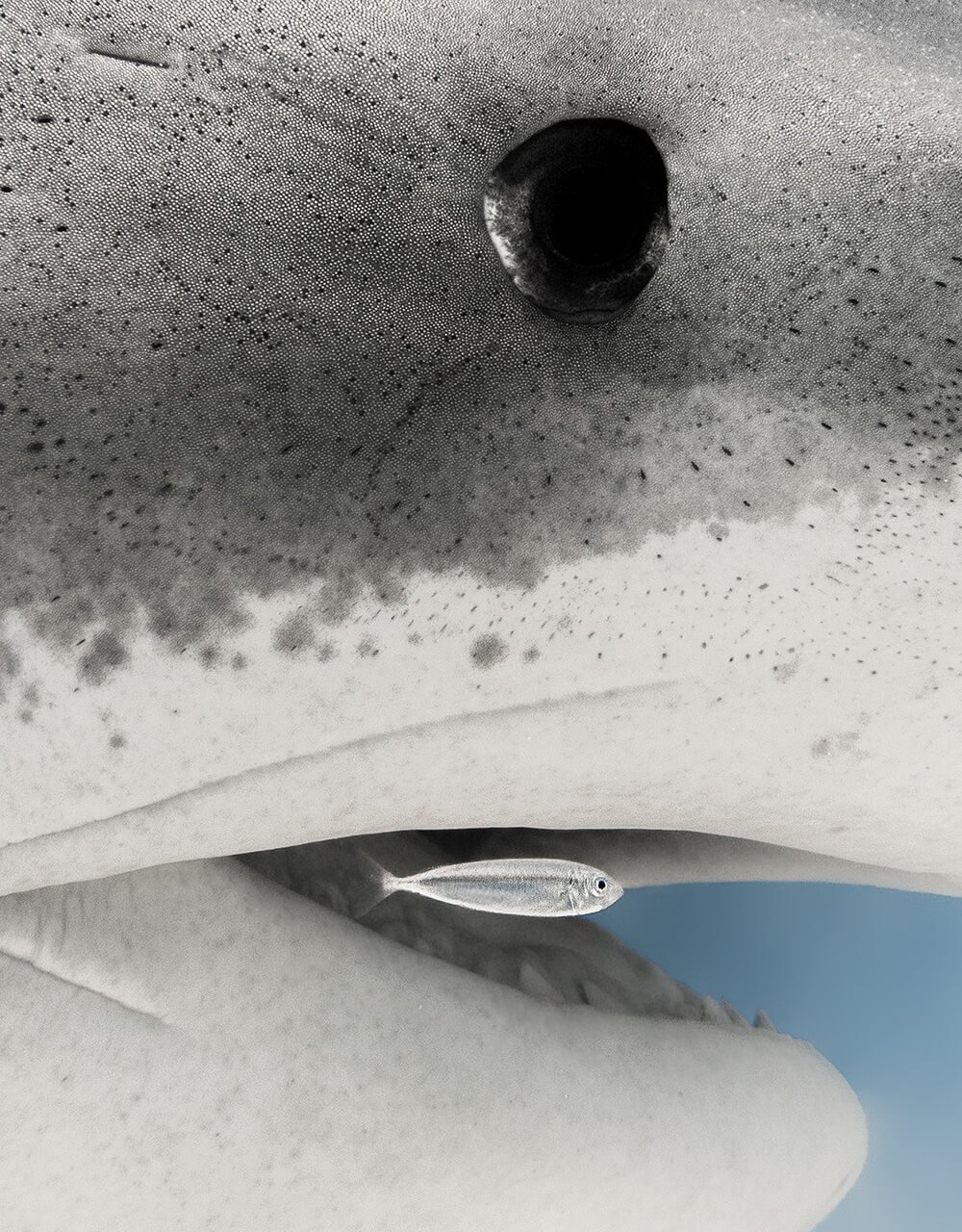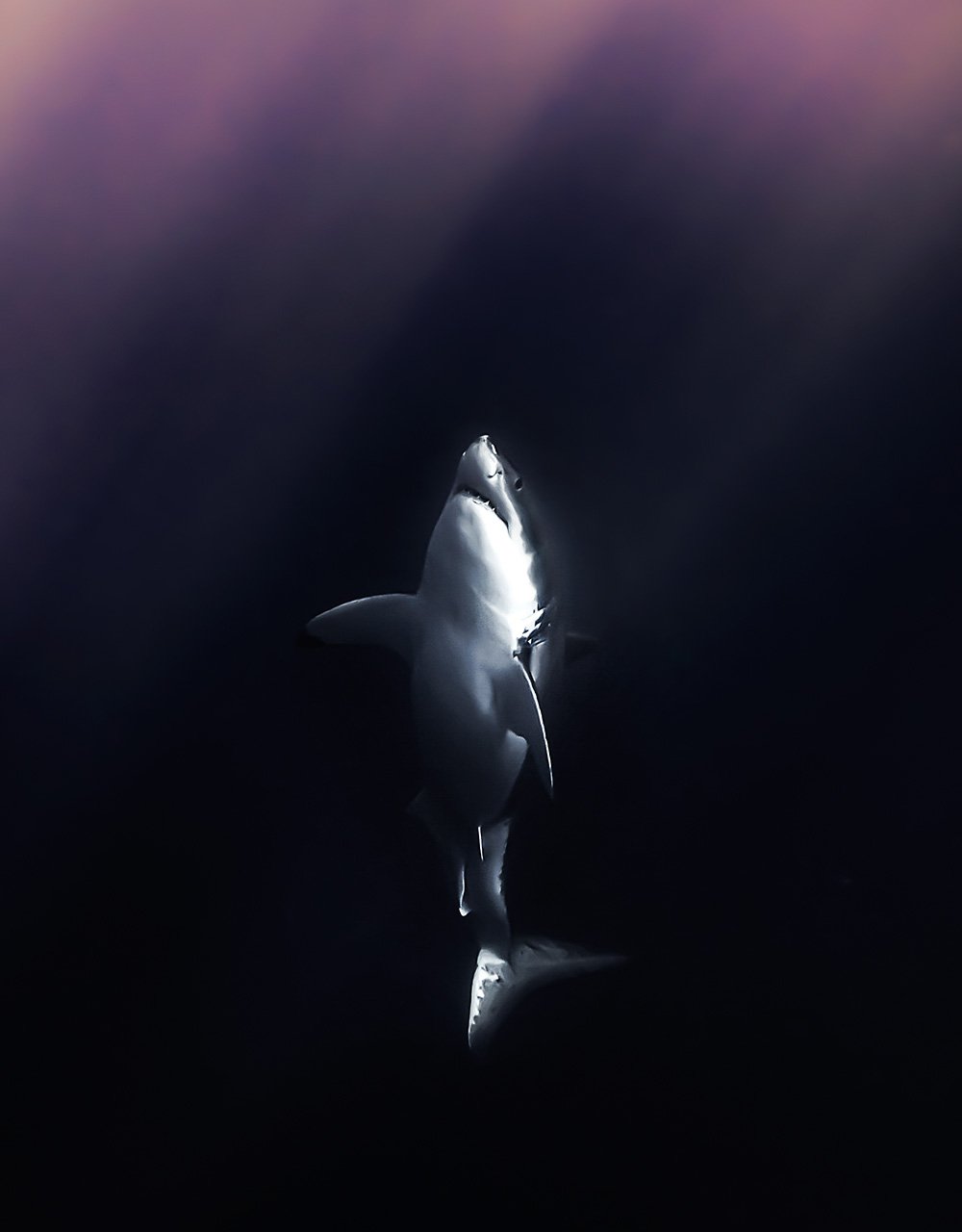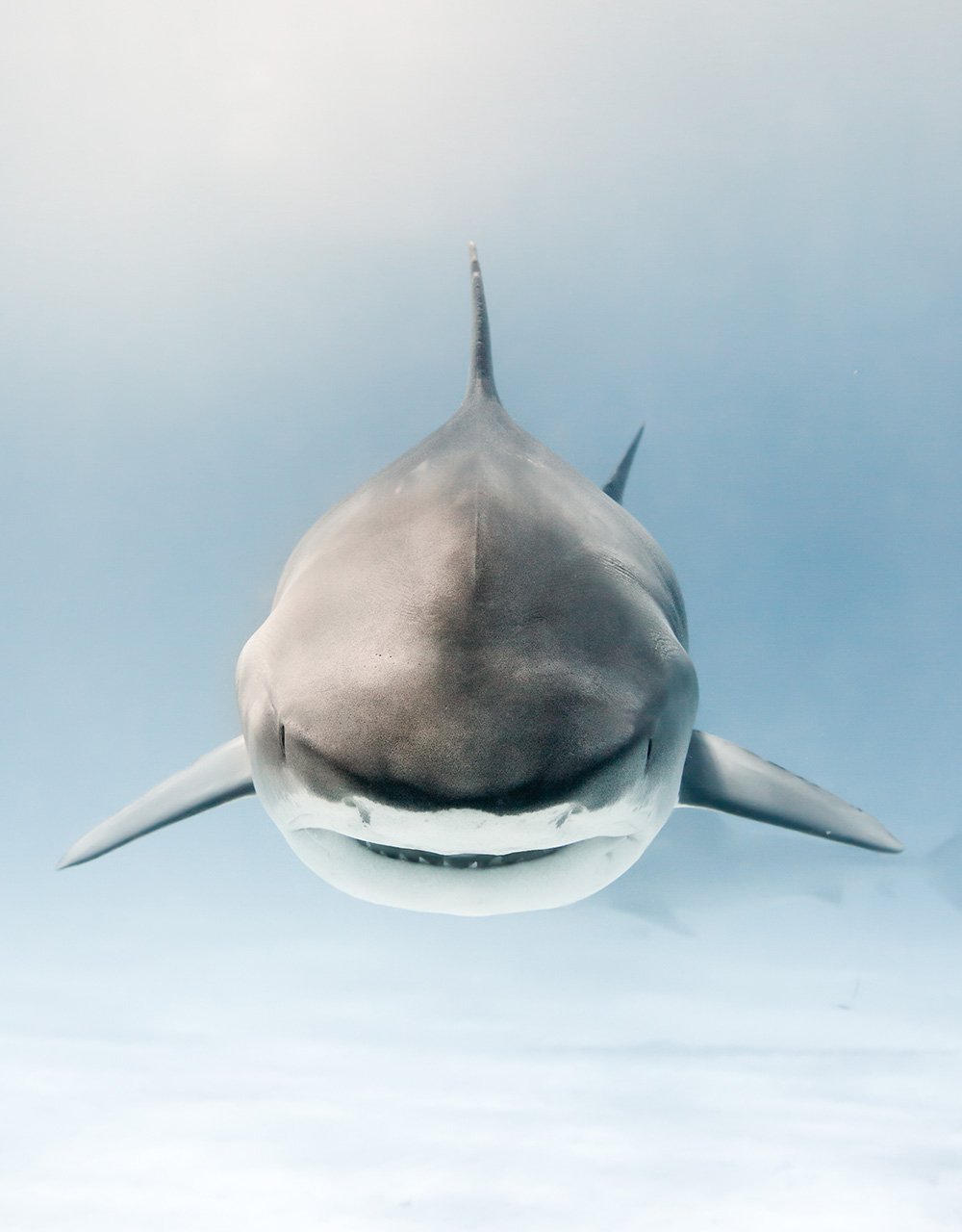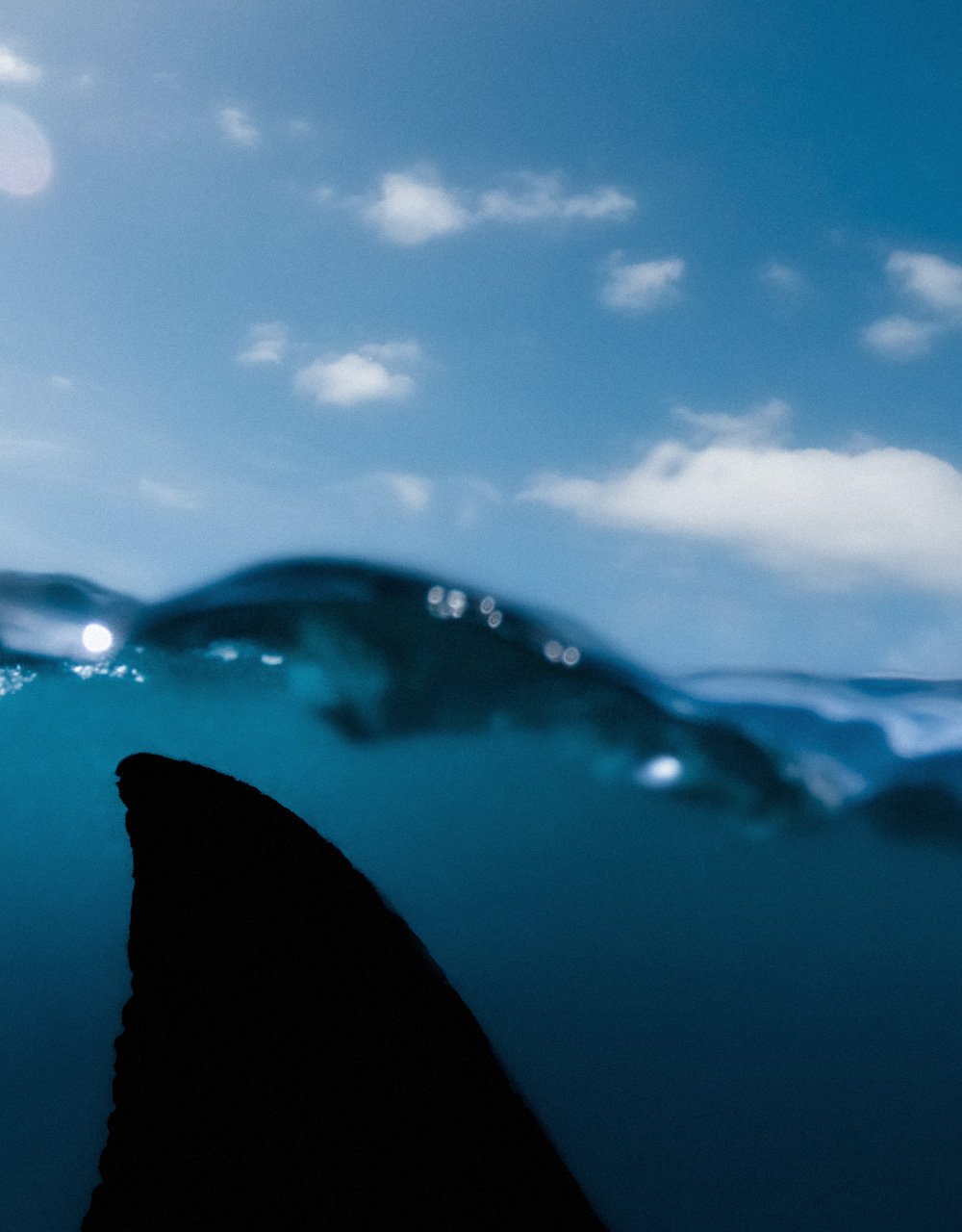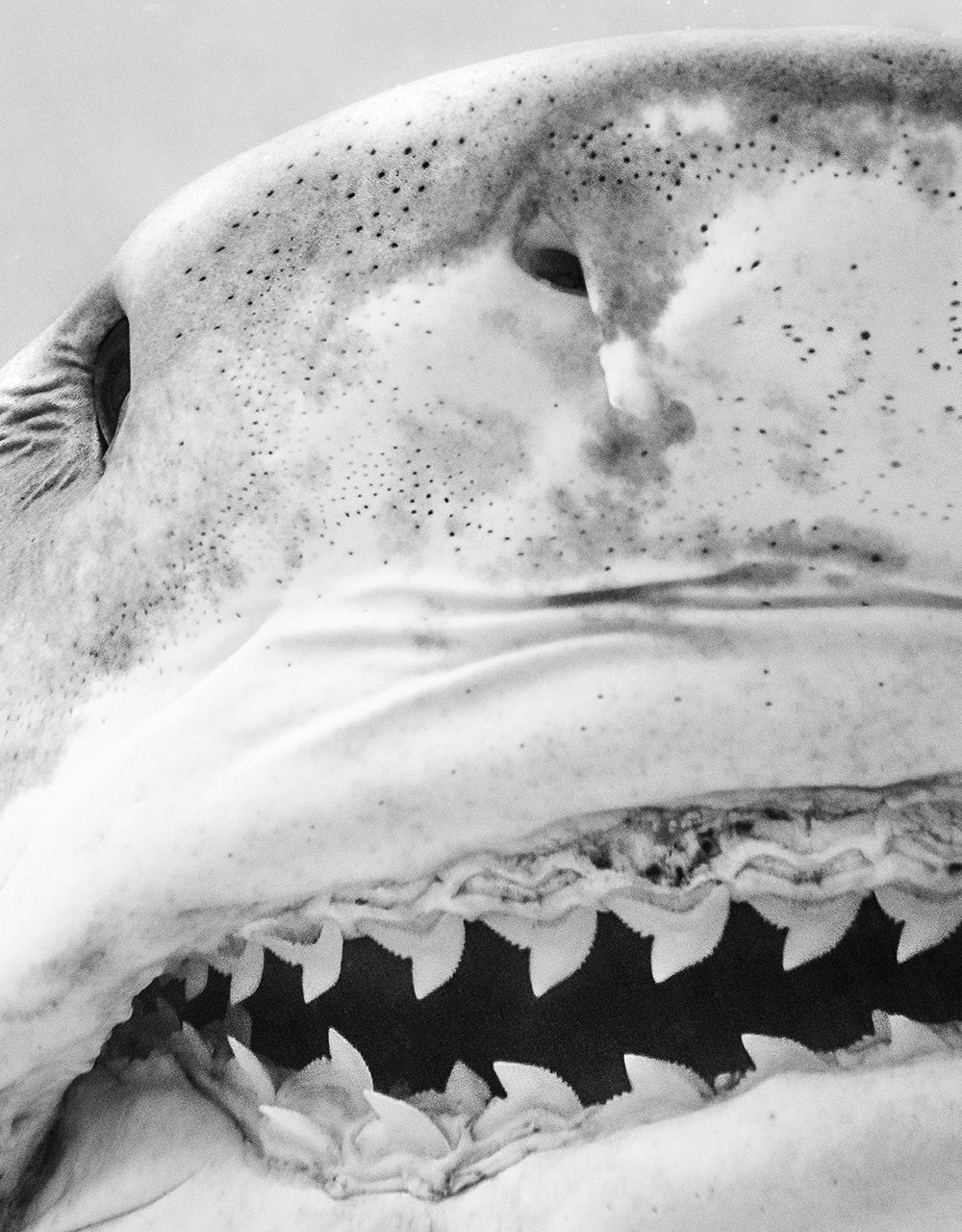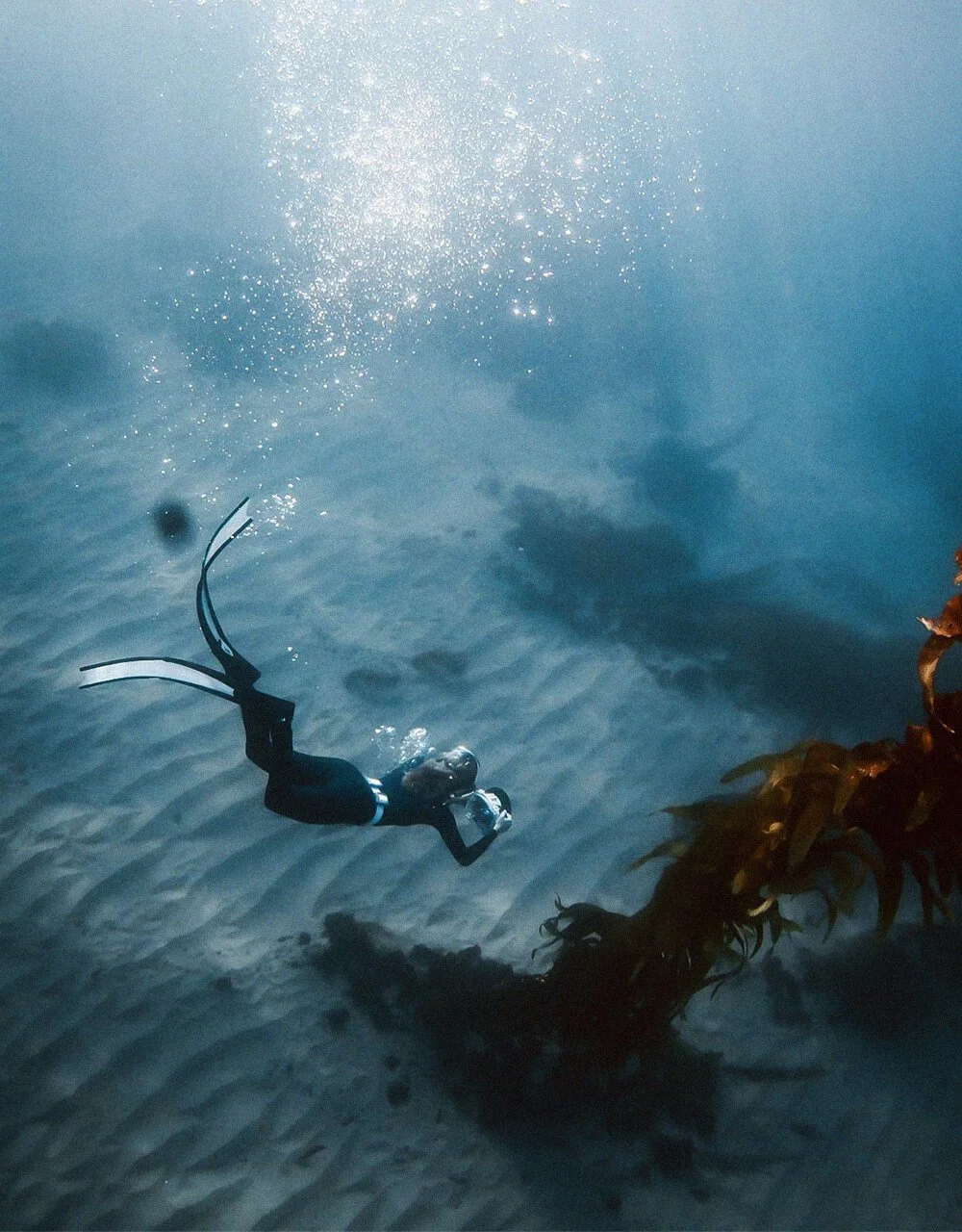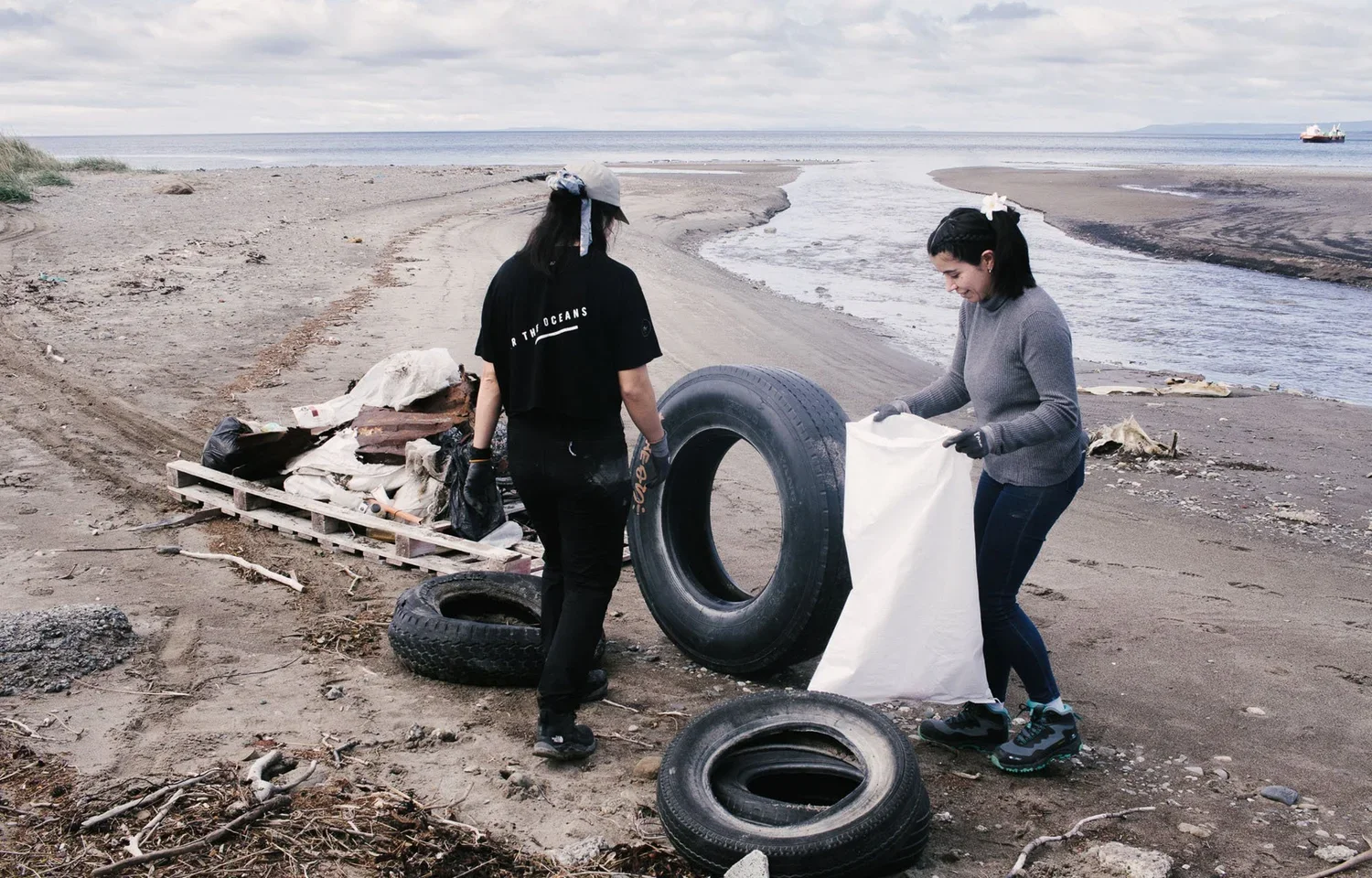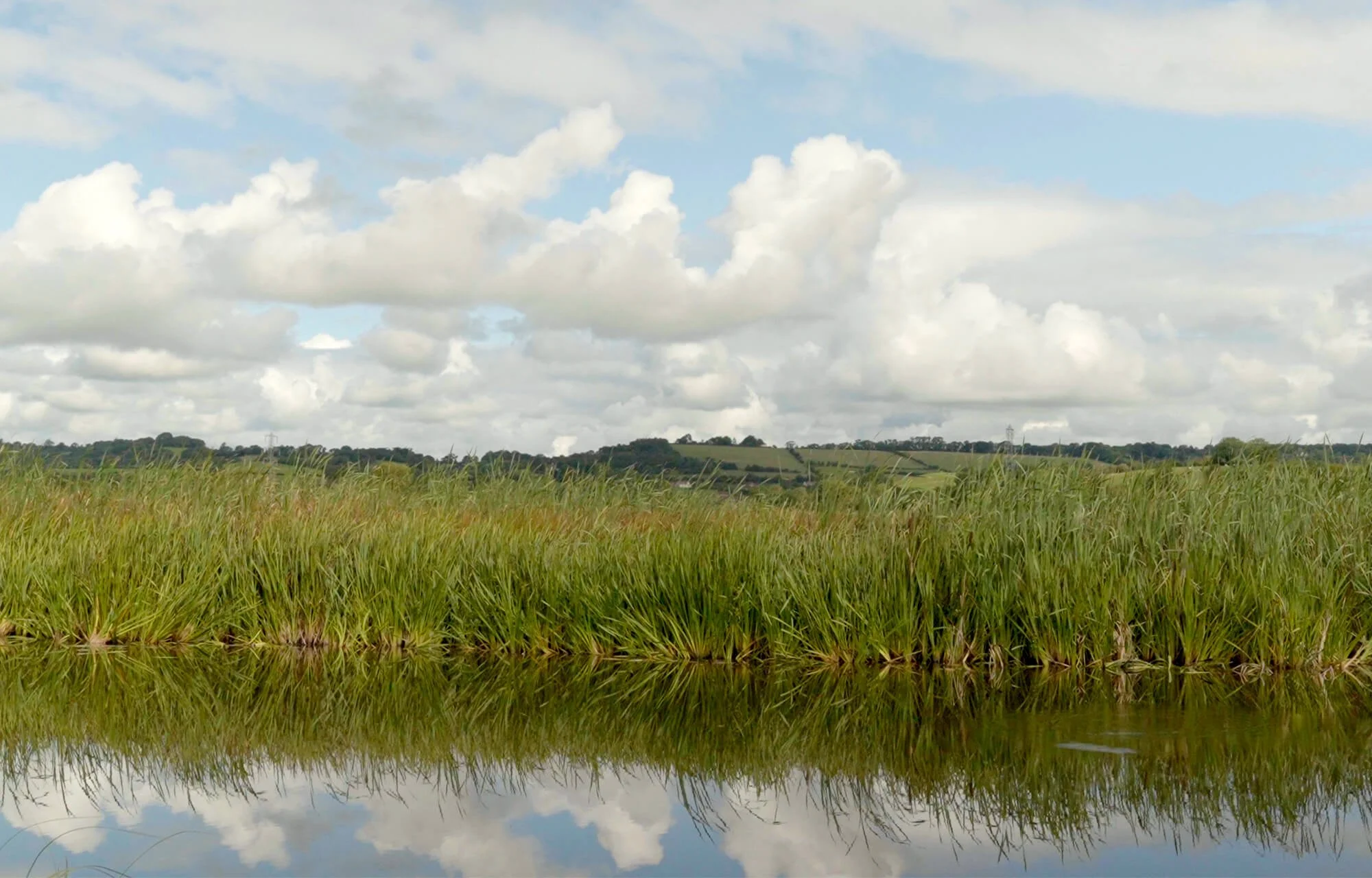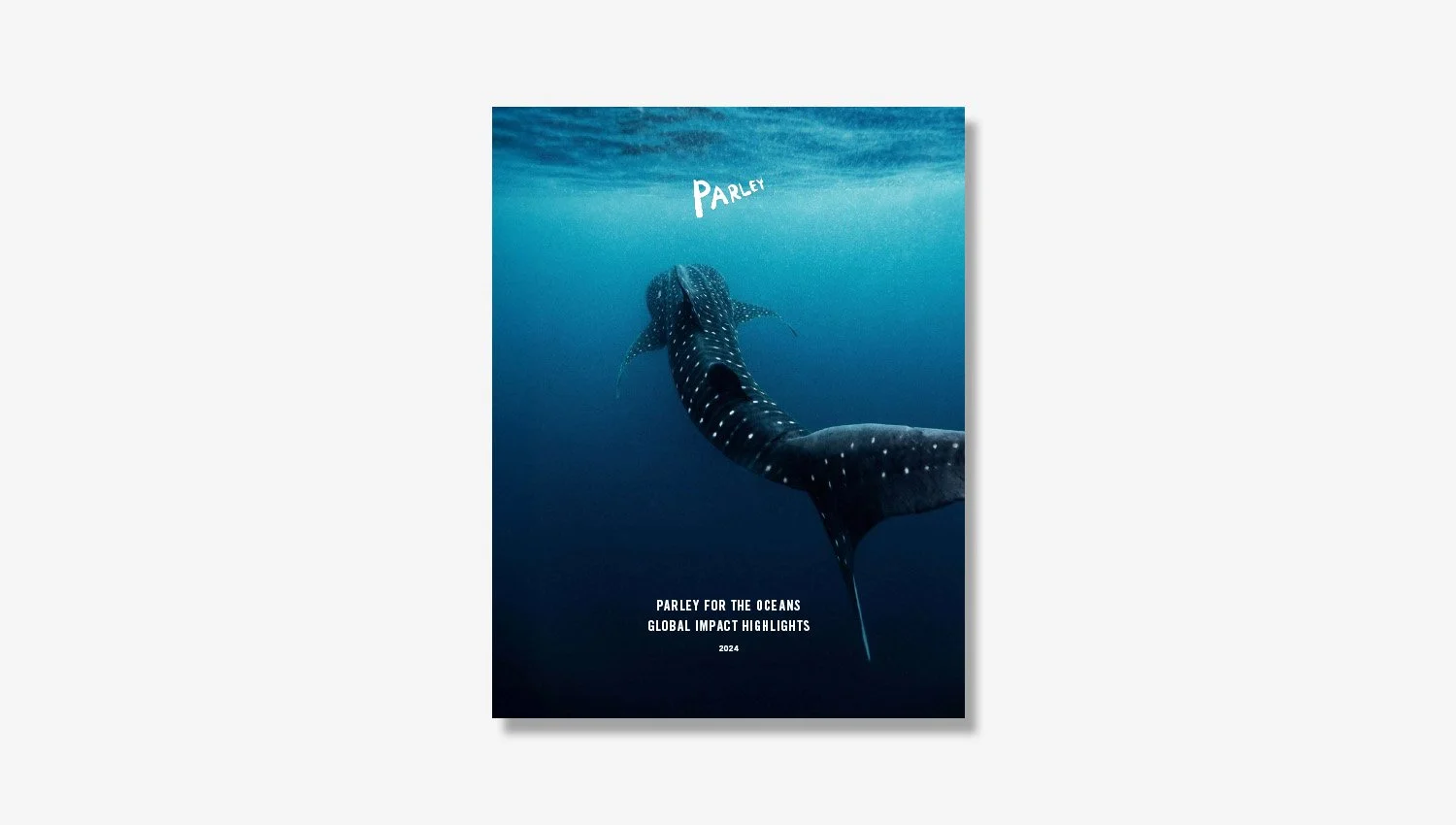IN FOCUS: MIKE COOTS
We speak to the legendary photographer about his work documenting the apex predators that changed the trajectory of his life
For most people, losing their leg at 18-years-old to a tiger shark attack would result not just in a fear of sharks, but a fear of the water. However, Mike Coots is unlike most other people. The thoughts consuming the 44-year-old Hawaiian as he was laid up in bed recovering from the attack in Kauai were “how quickly can I get back into the water” or “I wonder what the waves are like today.” Staying out of the water simply wasn’t an option and within a month he was back.
Now, Coots has a custom-built prosthetic leg, specifically designed to help him bodyboard and surf. In many ways the attack has defined him, just not in a negative sense – he’s since dedicated his life to shark conservation and photographing the species up close. Inspired by watching the influential 2006 film Sharkwater, Coots fought to have legislation passed in 2010 that made possessing shark fins illegal in Hawai’i, a pioneering law that applied pressure to other states to do the same.
His photography of sharks is breathtaking. Taken at face value they’re incredible images of sharks that aim to reconfigure the human perception of creatures who occupy a strange place in popular culture. Additionally, when you factor in that Coots is free swimming with predators such as great whites or tiger sharks, having suffered a traumatic attack as a teenager, the work assumes a whole new depth and meaning. His first book, simply titled Shark, will be published by Rizzoli in September. To borrow a piece of modern parlance, there’s nobody doing it quite like him. For our latest In Focus, we caught up with the photographer and conservationist to find out what it feels like to swim with sharks, discuss going viral on Reddit, and whether or not his loved ones have ever asked him to do a more normal job.
Q & A
I know that you were born and raised in Hawai’i so the ocean is always close but how quickly did it become a part of your life?
I think I would have been four years old when I caught my first wave, my grandmother pushed me in on a boogie board. From there it felt like every day. Boogie boarding led to snorkeling, to fishing, to diving, to spear fishing. It was one of those things that didn’t phase out of my life, it just built. As I got older it consumed everything in me. When I was in school I was just thinking “how soon can I get to the beach when that bell rings”.
After you lost your leg to a tiger shark attack, how quickly did you make the decision to get back in the water?
In the days right after the attack the hardest part wasn’t missing a leg, it was being out of the water. I hadn’t been out of the water for a week in my life besides being really sick. And the waves were really good during that period! I was in hospital for like a week and then bedridden for three weeks or so. It was a month after the attack that I could go back in the water – once the doctor said the risk of infection was gone and removed the staples from my other foot I was right back in the water. It sounds silly, but the hardest part was being out of the water.
Three weeks in bed is a lot of thinking time. Was that a period that you self-reflected or thought about the future of your life?
It wasn’t necessarily self-reflection, I was just figuring out how to get back in the water. I was trying to get my gear ready and trying to figure out how I was going to bodyboard with one foot, the technical side of things. My friends would come over every day and talk about the waves and I’d ask where was good today and what I was missing.
You then set out to photograph sharks, animals that have a certain reputation in popular culture. Your work is stunning – what is it that you’re trying to communicate about sharks with your images?
Popular culture has done a really good job of telling us that sharks have their eyes rolled back, their jaws protruding, their teeth hanging out ready to attack and kill anything that they can. I try to make my body of work something that balances that. If you go diving with sharks you realize the majority of the time that’s not the case, they’re just swimming beautifully in clear water under beautiful sun rays. With my photography I try to showcase that, tell a more authentic story, and give them the credit they deserve as beautiful and much-needed animals in our oceans.
I try to shoot them as I would shoot people. I studied portraiture in college, I went to art school and majored in photography so I spent a lot of time learning how to shoot people. I imagine sharks are a person and try to personify them with a smile or a smirk, something you would see in yourself. If you can see something of yourself, you want to learn more about it. If you can show beauty and intelligence, people have more of a connection.
How do you feel when you are taking these photos? Is it fear, is it adrenaline, is it something else entirely?
On the boat there’s a lot of anticipation, half to do with the nature of sharks but also bringing your gear underwater and the technical side of things. When I’m underwater it depends whether I’m scuba diving or freediving, what species, where in the world, the water clarity. I’m trying to nail my focus and composition but I’m also keenly aware of safety – not necessarily the shark I’m shooting, but one that may be behind me or one that might be coming up vertically. I’m trying not to put the blinders on, staying aware of the world around me. It’s such a dynamic shooting situation, it’s not like being in the studio where everything’s controlled, you’re really at the mercy of sharks, and the technical side of diving too. It’s a balance and a dance.
How do you swim with and photograph sharks? What advice would you give somebody?
If you want to get into diving with sharks, find a company or a guide that is really confident in that area with that species of sharks. Don’t go by yourself, go with somebody that is experienced. Don’t take a camera the first time, just observe.
What’s your opinion of cage diving?
I could see how having bait in the water could change shark behavior, but I’ve seen studies where that’s not the case and I really don’t know the science inside out. I think more people being able to experience sharks underwater and tell stories about how beautiful sharks are to their friends and learn more about them, help protect them, could be a good thing. I think the baiting conversation is going to be less important in the future because we really don’t have many sharks. A third of all shark species are on the brink of extinction. In 50 years, the baiting conversation is going to be non-existent if we don’t have sharks. There’s such a bigger issue that’s affecting sharks and it’s not the behavior of a couple of destinations in the world where people are cage-diving with sharks.
You’ve dedicated your life to shark conservation, what are the major threats facing them globally?
The biggest threat to sharks right now is bycatch from the commercial fishing industry, specifically the longline industry. Here in Hawai’i a huge amount of sharks are caught for tuna, for poke bowls across America, for sashimi. Also, shark fin soup, the practice of cutting off shark fins and throwing the rest of the body back in the water. It’s barbaric – there’s no cultural or nutritional value to shark fin soup, it’s just not needed in 2023 on planet Earth. As our population grows and we need more and more food, it’s the bycatch from the commercial fishing industry that’s the biggest threat. If you do want to eat fish, choose your fish wisely. Your best bet is to buy it from your local fisherman down the road. The commercial fishing industry is just like any other big conglomerate industry, it’s all about profit, about take take take in any way you can, and that’s taking a lot of sharks.
Back to your photography - do you have a favorite photograph of yours?
Yeah I do, I can show it to you (picks up the advance copy of his new book). It was just a really lucky shot in New Zealand, on my first dive trip there. I was on the boat between dives and I had my GoPro on a stick on the half-second timer mode. This shark was spyhopping (holding itself vertically in the water) and I thought ‘That was pretty cool, I wonder if I got a shot of that’. Days later I realized that I did. I put it on the internet and somebody on Reddit made a meme out of it. I like showing sharks differently, using humor, not so seriously. I think it worked perfectly.
Do you have a favorite moment with sharks?
My favorite moment was my very first tiger shark dive in the Bahamas years after being attacked. I hadn’t been in the water with a tiger shark since. The water was really clear, there was so much anticipation, build up and nervousness. I was looking at sharks in the clearest water with no currents in only 30ft of water, so all my dive worries were gone. The entire trip, every single day we were surrounded by tiger sharks. That was the most beautiful and memorable shark dive of my life.
You’re doing something that most people would consider dangerous. Have any of your loved ones ever asked you to stop?
My grandmother wasn’t a huge fan. My parents have always been very supportive, my friends are too, and I feel grateful to have that as it’s not the most orthodox career, it’s pretty out there. They see that people enjoy my work and see the value that it brings to the ocean-loving community and to our planet.
How positive do you feel about the future of our oceans?
I’m optimistic because we have a lot of passionate people. I get a lot of messages from people who want to get into the shark world, or they want to protect our oceans. I do see a shift – conversation 20 or 30 years ago was a lot different. We’ve got marine debris, oceans warming, all these stressors on our planet, and I hope that we can find the technology and the right intelligent people to make a drastic shift in the next few years as this period will be crucial.
How long did it take to put your book together and when is it coming out?
It took about a year and a half. I had an idea to showcase sharks in a different way and to pitch it to publishers. Rizzoli said ‘yes absolutely’ straight away which to me felt like a huge accomplishment in itself. Then I was working with the designer on layouts, getting a foreword written, a title made, doing all that. It comes out in September, it’s been a really interesting process and I’m already thinking about the second book.
“Popular culture has done a really good job of telling us that sharks have their eyes rolled back, their jaws protruding, their teeth hanging out ready to attack and kill anything that they can. I try to make my body of work something that balances that. If you go diving with sharks you realize the majority of the time that’s not the case.”
MIKE COOTS

